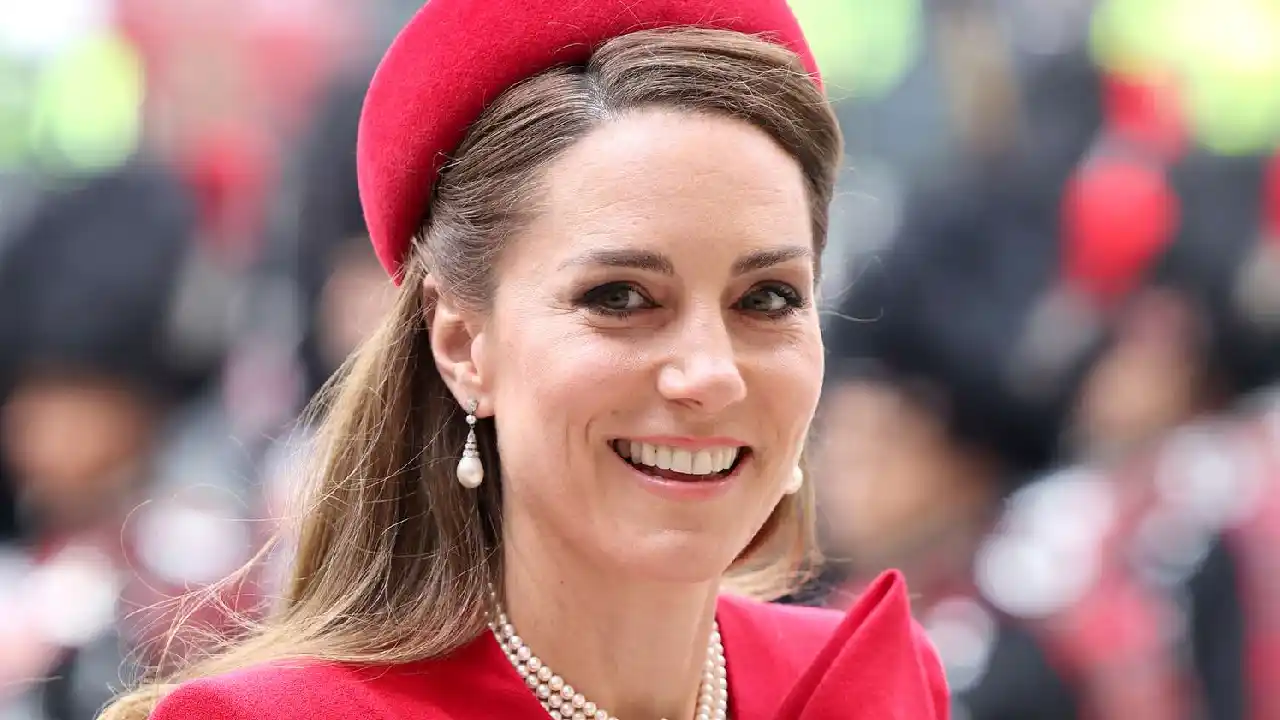Kate Middleton is reportedly holding a crucial meeting—and in its immediate aftermath she has unveiled a comprehensive new mental health strategy, announced the launch of an expanded “Early Years” foundation, and forged fresh partnerships with environmental and community‑based organizations.
As of April 4, 2025, the Duchess of Cambridge convened senior advisers, charity leaders, and policy experts at Kensington Palace to chart the course of her key initiatives. By day’s end, attendees emerged with a clear roadmap: a nationwide mental health taskforce, an endowed fund for early childhood development, and a cross‑sector sustainability coalition—all set to roll out over the coming months.
This pivotal gathering marks both a culmination of months of groundwork and a springboard for the next phase of Kate’s public advocacy. The immediate outcomes demonstrate her growing influence within the royal family’s public agenda and signal a strategic shift toward more hands‑on leadership in social causes. Below, we analyze the context, dissect the meeting’s discussions, and explore the far‑reaching aftermath that continues to reshape both Kate Middleton’s role and the monarchy’s engagement with contemporary issues.
Why “Kate Middleton is reportedly holding a crucial meeting” mattered
Since her royal debut, the Princess of Wales has balanced traditional duties with modern advocacy, focusing on mental health and early childhood development. Reports first emerged that “kate Middleton is reportedly holding a crucial meeting” on April 4, 2025, sparking speculation about the scope and stakes of the gathering. With the monarchy under increasing public scrutiny post‑pandemic, every royal engagement carries amplified significance.
Historically, Kate’s meetings have served as launchpads: her roundtable with mental health advocates in 2018 laid the groundwork for the Heads Together campaign, while her 2020 convening with education specialists catalyzed the Early Years initiative. In this light, the April meeting was widely anticipated to define her next strategic moves—and it did not disappoint.
Attendees: A cross‑section of expertise
The meeting drew a carefully curated group of stakeholders:
- Mental health professionals from leading NGOs and the NHS, including representatives from Mind and YoungMinds.
- Early childhood experts, such as pediatric psychologists and educational researchers from the UCL Centre for Early Childhood.
- Environmental advocates, notably figures from the Royal Botanical Gardens and sustainability think tanks.
- Community leaders, including heads of regional charities tackling social isolation and youth engagement.
- Royal Household advisers, ensuring alignment with palace protocols and broader royal priorities.
By convening this diverse cohort, Kate signaled her intent to integrate multiple perspectives—mental health, education, environment, and community welfare—into a cohesive action plan.
Key topics discussed
1. Mental health strategy
Building on her past advocacy, Kate pressed for a unified national framework to tackle mental health across age groups. Discussion points included:
- Creating a centralized helpline staffed by trained volunteers and professionals.
- Embedding mental wellness curricula in schools, with pilot programs set to launch in five regions.
- Expanding telehealth services to reach rural and underserved communities.
2. Early Years Foundation
The meeting formalized plans for an endowed Early Years fund aimed at supporting parents and caregivers. Highlights:
- Grants for community playgroups focusing on language development and parental bonding.
- Training programs for early years practitioners, emphasizing trauma‑informed care.
- Research partnerships to measure long‑term outcomes on children’s social and emotional well‑being.
3. Environmental sustainability
Reflecting the royal family’s increasing eco‑focus, attendees discussed:
- Community‑based conservation projects, such as urban tree planting and river cleanup initiatives.
- Sustainable fashion partnerships, leveraging Kate’s influence to promote eco‑friendly textiles.
- Public awareness campaigns on climate resilience tailored for schools and local councils.
4. Community engagement
Recognizing the importance of grassroots support, the group explored:
- Regional listening tours, where Kate and her team would visit local charities and community centers.
- Volunteer mobilization platforms to connect citizens with nearby social projects.
- Digital outreach, including a revamped royal website section dedicated to social impact stories.
Outcomes: Concrete commitments and next steps
By the meeting’s close, the following commitments were formalized:
- National Mental Health Taskforce
- To be chaired by a leading psychiatrist, with quarterly progress reports published publicly.
- Early Years Endowment
- A £5 million seed fund established under the patronage of the Princess of Wales, to be administered by the Anna Freud National Centre for Children and Families.
- Sustainability Coalition
- A consortium of NGOs, businesses, and educational institutions to pilot three eco‑projects by year‑end.
- Community Engagement Roadmap
- A schedule of regional visits and digital engagement milestones, beginning in June 2025.
These outcomes reflect a strategic elevation of Kate’s advocacy—from awareness‑raising to direct program implementation.
Aftermath: Public and media reaction
Within hours of the meeting, palace spokespeople released a summary of the key decisions, triggering widespread media coverage:
- Front‑page headlines in national tabloids praised the “bold new direction” of Kate’s work.
- Social media saw trending hashtags such as #KateForChange and #EarlyYearsEmpowerment, with thousands sharing personal stories of mental health challenges and early childhood experiences.
- Commentary from royal watchers highlighted the meeting as a turning point, positioning the Princess of Wales as a de facto “Minister for Well‑being.”
Critics, however, cautioned against overreach, questioning whether a royal could effectively oversee complex public health and education reforms. Nonetheless, the overall tone leaned positive, with many noting that Kate’s hands‑on approach could reinvigorate the monarchy’s relevance.
Expert analysis: Weighing the potential impact
Mental health experts
Dr. Eleanor Swift, a child psychologist, lauded the taskforce initiative: “Centralizing resources and data will allow for targeted interventions and reduce the stigma around seeking help.” Yet she warned that sustained government funding and cross‑departmental cooperation will be critical for long‑term success.
Education specialists
Professor Liam O’Connor of UCL emphasized the importance of evidence‑based programming: “The success of the Early Years fund will depend on rigorous outcome measurements. If done right, it could become a global model for early childhood policy.”
Environmental advocates
Greenpeace UK’s campaigns director, Maya Patel, welcomed the coalition: “Royal endorsement brings visibility and credibility. Our hope is that these pilot projects demonstrate scalable solutions that can be adopted nationwide.”
Implications for Kate Middleton’s role
The swift transition from discussion to action underscores a deliberate shift in Kate’s public persona. No longer content to serve as a ceremonial figure, she is carving out a niche as a proactive leader on social issues. This evolution carries several implications:
- Enhanced authority: By delivering tangible programs, Kate strengthens her hand in future policy dialogues.
- Greater scrutiny: As outcomes become measurable, both successes and shortcomings will be amplified by media and public opinion.
- Legacy building: Should these initiatives bear fruit, they will define her legacy beyond royal protocol.
Moreover, the meeting’s collaborative model—uniting charities, government bodies, and community groups—sets a template that other royal patrons may follow.
Lessons from past royal initiatives
Comparing this meeting to previous royal efforts offers perspective:
- Prince Harry’s Invictus Games demonstrated the power of targeted events to spotlight veteran issues, but faced sustainability challenges once the initial excitement waned.
- Queen Elizabeth II’s patronage of wildlife conservation built incremental progress over decades, illustrating the value of patience and continuity.
Kate’s approach—combining high‑profile announcements with structured implementation plans—aims to balance visibility with longevity.
Looking ahead: Monitoring progress and next milestones
Key dates and indicators to watch:
- June 2025: Launch of the first regional listening tour in Manchester.
- August 2025: Publication of the taskforce’s initial report on mental health service gaps.
- October 2025: Rollout of the first Early Years grant recipients.
- December 2025: Year‑end summit to review progress across all four pillars.
Stakeholders and the public alike will track these milestones closely, assessing whether the lofty goals set in April translate into measurable improvements.
Conclusion
When “Kate Middleton is reportedly holding a crucial meeting,” it signals more than just another royal engagement—it heralds a strategic inflection point. The outcomes and aftermath of the April 4 gathering demonstrate the Princess of Wales’s commitment to moving from advocacy to action, with a clear plan to tackle mental health, early childhood development, environmental sustainability, and community engagement. As these initiatives unfold, they will test the capacity of a modern monarchy to effect real social change and redefine what it means to serve in the 21st century.
With bold commitments already on the table and a structured roadmap guiding implementation, the true measure of success will be seen in the lives improved, the communities strengthened, and the conversations transformed by Kate’s leadership. The world now watches to see if this crucial meeting becomes the catalyst for lasting impact—and a new chapter in royal service.
FAQs
Q. What was the focus of the crucial meeting Kate Middleton held?
The meeting centered on advancing initiatives in mental health and early childhood education, aiming to foster targeted support for children and families facing well‑being challenges.
Q. Why is this meeting considered crucial for her public role?
It marks a shift from awareness‑raising to hands‑on leadership, signaling that Kate is taking a more active role in shaping social‑impact programs—decisions from this gathering will resonate throughout her future engagements and responsibilities.
Q. What is the goal of Kate’s meeting?
Her aim was to align her charitable initiatives more closely with community needs, leveraging local insights rather than top‑down assumptions to drive meaningful change.
Q. Will this meeting cost taxpayers?
No—these initiatives are funded entirely through private donations and existing charity budgets, without drawing on public funds.
Q. Can the public get involved?
Yes—members of the public can engage indirectly by supporting or volunteering with the local organizations partnering on these initiatives (e.g., Scouts groups, addiction support centers).

